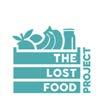CHAPTER 4 SDG PROGRESS




Zero Hunger
Food insecurity exist whenever people are unable to access sufficient and quality food at all times for an active and healthy lifestyle. Though the adequacy of domestic food production and capabilities to mobilize food on time from international markets may be sufficient in Kuala Lumpur, this does not necessarily translate and guarantee sustained food security at the household level. Continuous efforts have been conducted by various government agencies and partners in Kuala Lumpur to ensure that all have access to safe and nutritious food. Among others are the promotion of community and private urban farming, establishment of community food bank and food aid distribution as well as ensuring effective transport and logistical support.
Ending Hunger for All and Achieve Food Security
Kuala Lumpur remains vulnerable to food insecurity as the city is reliant on food imports to maintain its food supply. It is estimated that the average household monthly expenditure on food in Kuala Lumpur is approximately RM 800 or 11.6% of total household expenditure.
In Kuala Lumpur as well as nationally, food insecurity is significantly correlated with the income levels of the household, where during a food crisis, the brunt is significantly felt by the most vulnerable members of society, including the low-income (B40s) residents, migrants, homeless and the disabled. Disruption in the global food supply chain and the continuous rise in food price inflation have further exacerbated the impact on these communities and forced them further into poverty.
The federal government together with Kuala Lumpur City Hall and non–profit organizations have conducted various programmes and social aid to soften the impact of food insecurity among the most vulnerable as well as ensure that nutritious and safe food is accessible all year round.
Kuala Lumpur Local Agenda 21 (LA21) Urban Garden Project
KLCH has implemented community and urban farming programs since 2014 as part of their greening initiatives in the city as well as to improve food security for the communities involved.
The project implemented under the leadership of city resident groups and the City Planning Department aims to transform empty spaces and underutilized land near residential areas into community-based agriculture thus generating more green lungs in the city.
The City Hall has also collaborated with the private sector and non-governmental organizations to capacity-build participants in upscaling its farm and as well as varying its cultivation. To date, some community gardens have gone beyond personal consumption and sold produce for profit. 37
Existing community gardens
Propose new community garden
Food Aid Programme and Food Bank in Kuala Lumpur
Source: KLCH, 2022 Food Aid Programme and Food Bank in Kuala Lumpur
As a response to the adverse impact of COVID-19 on the lower-income group in Kuala Lumpur and Putrajaya, the Federal Territory Ministry has introduced the MY5 Programem. The main aim of the social aid programme is to eradicate poverty and thus reduce the income disparities among dwellers in the Federal Territory. KLCH is among the lead agencies and implementors for the MY5 Programme.
Among the support provided are MYGrocer@ Wilayah, MYBeras@Wilayah, and MYFood@ Wilayah whereby the urban poor and B40 groups residing in public housing areas are able to attain their food supply through either discounted food supply (MyGrocer) or Food Baskets (MyFood & MyBeras).
The pandemic also led to an increase in the number of food banks initiated by government entities, nongovernmental organizations, and the private sector. These food banks were established to support not only the underprivileged but also the general population in terms of food recovery efforts.
Donations and contributions are gathered at makeshift warehouses scattered within the city and then packed into aid packages to be distributed to the surrounding communities.
These food banks had also become changemakers in terms of the reduction of food wastage
as nutritional supply are sourced from multiple suppliers, including bakeries, groceries, and fresh market, to mitigate the risk of supply distribution due to overdependence on food donation.






Indicator 2.3
Double Agriculture Productivity and Income of Small-Scale Food Producers
In 2021, KLCH together with the Ministry of Federal Territories introduced the Hijrah Warrior project, an urban farming project for the homeless located at Anjung Kelana Transformation Centre, Taman Desa. The project is part of City Hall’s initiative to sustainably address the homelessness issue in the city by transforming the homeless through urban gardening and bringing them out of homelessness.
Since its inception, the programme has evolved itself from providing skills and employment opportunities
Hijrah Warrior Impact
180
homeless people have participated in Kebun Bandar Hijrah Warrior, Anjung Kelana
• 6 months transformation programme (3 months activation & 3 months hands-on practice)
• Urban farming and sustainable agriculture skills and practices
• Free accommodation during transformation program me
• Other soft skill trainings
• Daily Allowance for the last 3 months (RM3 /day)
through gardening and agriculture to the homeless to providing them exposure to physical and online business management skills and entrepreneurship opportunities through the Hijrah Warrior Mart. Though the Hijrah Warrior Mart is still in its initial stage, KLCH plans to expand the concept and establish the mart in all public housing areas under the City Hall’s purview.
• Employment at partner farms and organization after completing programmes 4
homeless people have been employed at Hijrah Warrior Mart
• RM 1,200 minimum monthly salary
• Free accommodation
Way Forward for Hijrah Warrior
• Expansion of Hijrah Warrior Mart to all KLCH’s People’s Housing Project Rakyat (PPR) and Public Housing (PA) areas.
• Online platform for Hijrah Warrior Mart
